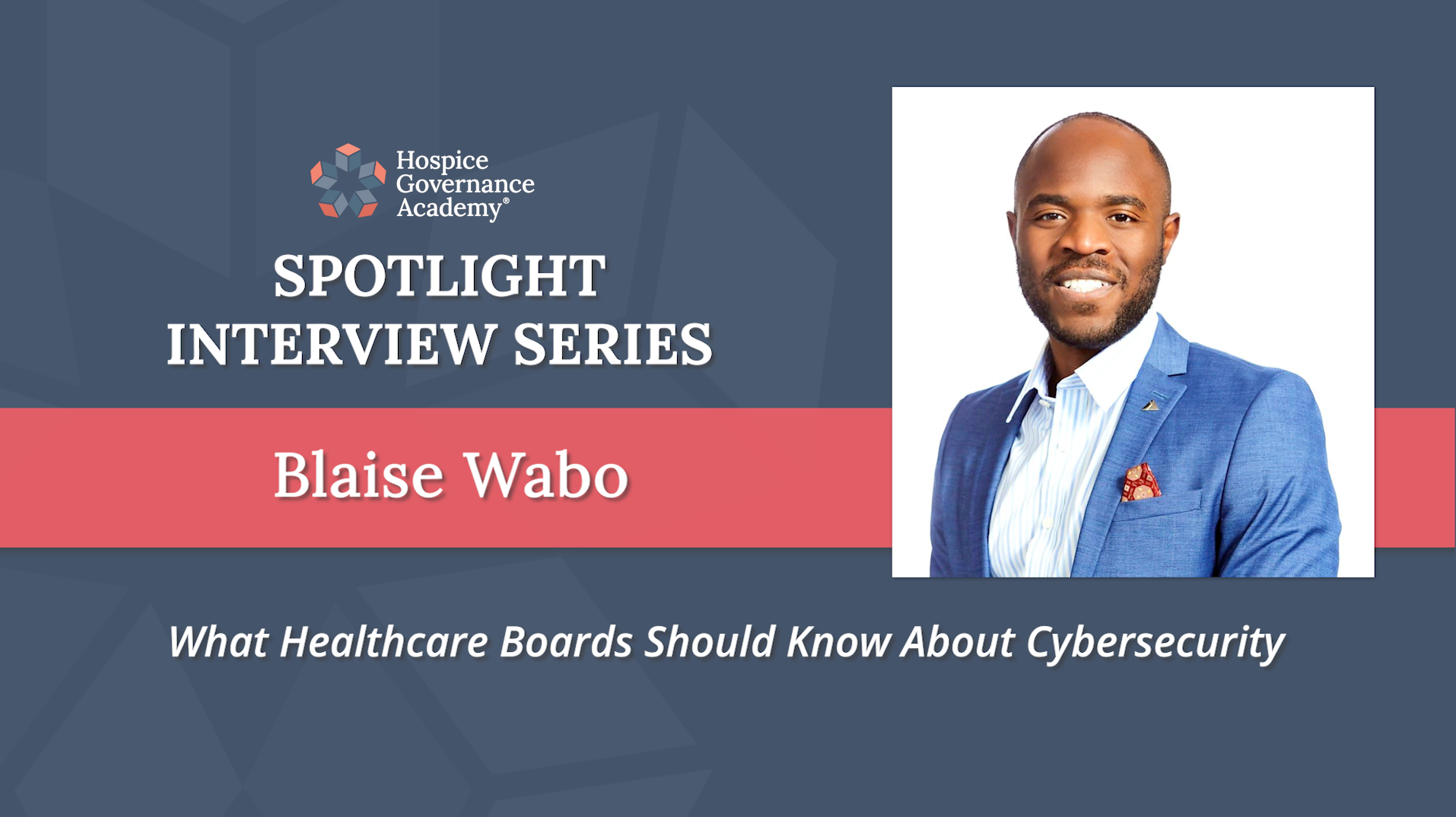
The fact that a patient can dial in from the convenience of their home or their office and talk to their primary care physician suddenly brings additional level of risk that we were not used to before.
What Healthcare Boards Should Know About Cybersecurity
One of the top risks facing all business organizations today is cybersecurity. The healthcare industry is no exception. That’s why it is important for boards of directors to understand the threats and ensure that their organizations are effectively addressing these risks.
Join Bill Musick, President of Integriti3D, as he dives deeper into the discussion of cybersecurity with Blaise Wabo, Healthcare and Financial Services Knowledge Leader at A-LIGN.
The risk and the threat landscape in healthcare has changed quite a bit.
Remote work, telehealth, a 700% increase in ransomware attacks… the world has become more digital. It’s important for healthcare board of directors to implement cybersecurity as a culture. According to Blaise Wabo, cybersecurity is no longer a good-to-have, it’s a must-have in order to scale and sustain your business. In this interview segment Blaise covers the basics of cybersecurity and some of the more common attacks businesses are experiencing today.
A board’s role is to assess and reduce the organization’s risk.
In this segment, Blaise Wabo walks through the steps a healthcare board must take in order to be prepared – because it is not if, but when, a breach will occur. From obtaining cybersecurity insurance and naming a chief information security officer to developing policies and procedures, then training and testing. Blaise outlines a comprehensive plan that is scalable based on the size of the organization and takes into account the HIPPA Safe Harbor law.
The future requires an interconnected industrywide perspective.
We live in an interconnected world where, from a healthcare perspective, with telemedicine and remote patient monitoring devices, everything is interconnected. And, from a regulatory standpoint, the government is making efforts to pass frameworks, regulations, and laws as well, to protect the end user. In this last segment, Blaise Wabo discusses the different regulatory, individual, and organizational considerations that need to be addressed in order to truly mitigate risk.
Finally, hospice-focused board development
The Hospice Governance Academy was created to provide industry-specific content directly to hospice leaders. HGA is an easy, online learning platform that ensures your board has a shared base of core hospice governance knowledge and is up-to-date on trends and issues facing hospice care today. Content is contributed regularly by industry recognized experts.
